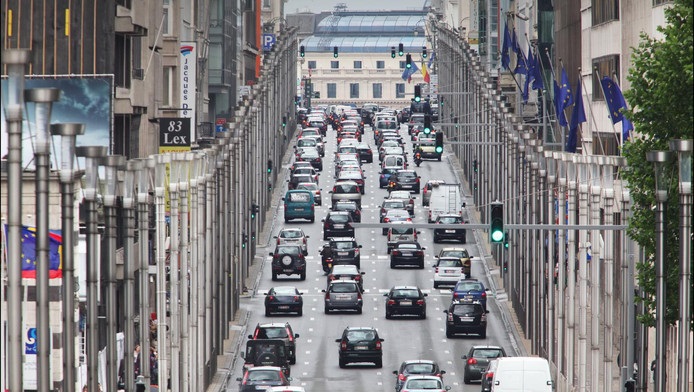Last year, companies in Belgium registered a record number of 315,557 new cars.
That is almost 22.000, or 7 % more than in 2018, exceeding the 300,000 mark for the first time in the Belgian company car market.
The share of company cars in Belgian car sales rose from 53% to 57% last year. This is the fifth increase in a row. In 2019, one-third more new company cars were registered than five years ago.
“The economy is still going well,” says Karl Schuybroek, Renault spokesman to De Tijd.
“Companies are constantly renewing their fleet. They buy differently, but not less.”
There is no unique explanation for the continuous growth in the popularity of the company car. The automotive sector points to the favourable economic climate. More and more companies are offering their employees a ‘cafeteria plan’ or mobility budget. A company car is often part of the package, reports New Mobility.
That means: employees give up wages or a thirteenth month in exchange for a fiscally friendly company car. “The company car is democratized,” says Michel Martens of the automotive importers’ Febiac. The company car is no longer the exclusive privilege of the top management. “The lower management and the workers are now also entitled to it.”
Legislative influence
The trend toward more commercial vehicles goes against legislative proposals. Before the elections, several political parties launched ideas to tackle the fiscally advantageous regime. Or to speed up the greening of the Belgian car fleet by encouraging the purchase of low-emission company cars.
For the time being, these plans do not influence the popularity of company cars. The Michel government already made the company car less attractive by limiting its deductibility. But that lower deduction has not encouraged companies to offer fewer company cars. “They opt for other types, such as smaller cars or a different type of motorization,” says Peetermans.
The possibilities to convert a company car fiscally advantageous into wages or alternatives have also had limited success.
Environment
The environmental impact of company cars is an issue under ongoing debate. Opinions are divided about whether more private kilometers are driven by company car or not. Last year, the Federal Planning Bureau stated that abolishing the salary car would reduce CO2 and NOx emissions by 2,7 percent.
A company car registered in 2019 emits an average of 119,3 grams of CO2 per kilometer. For a private vehicle, this is 123,9 grams. 2,3 percent of the company cars registered in 2019 are electric; for private vehicles, this is only 0,7 percent.
Despite the increase in the number of company cars, the overall car sales in Belgium stagnated at 550,000 vehicles last year. While the fleet market is running at full speed, the sales to private individuals in particular decreased.
This was mainly due to the high uncertainty among car buyers. Due to the introduction of low-emission zones and the imminent ban on diesel in cities, many private individuals have doubts about the choice of a new car.
The Brussels Times

